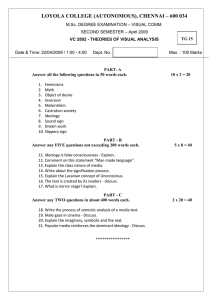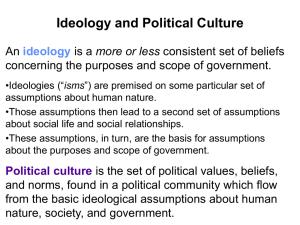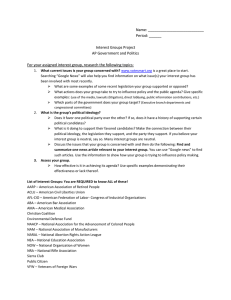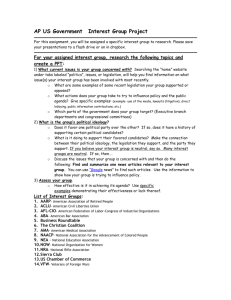Study Guide for Exam #2
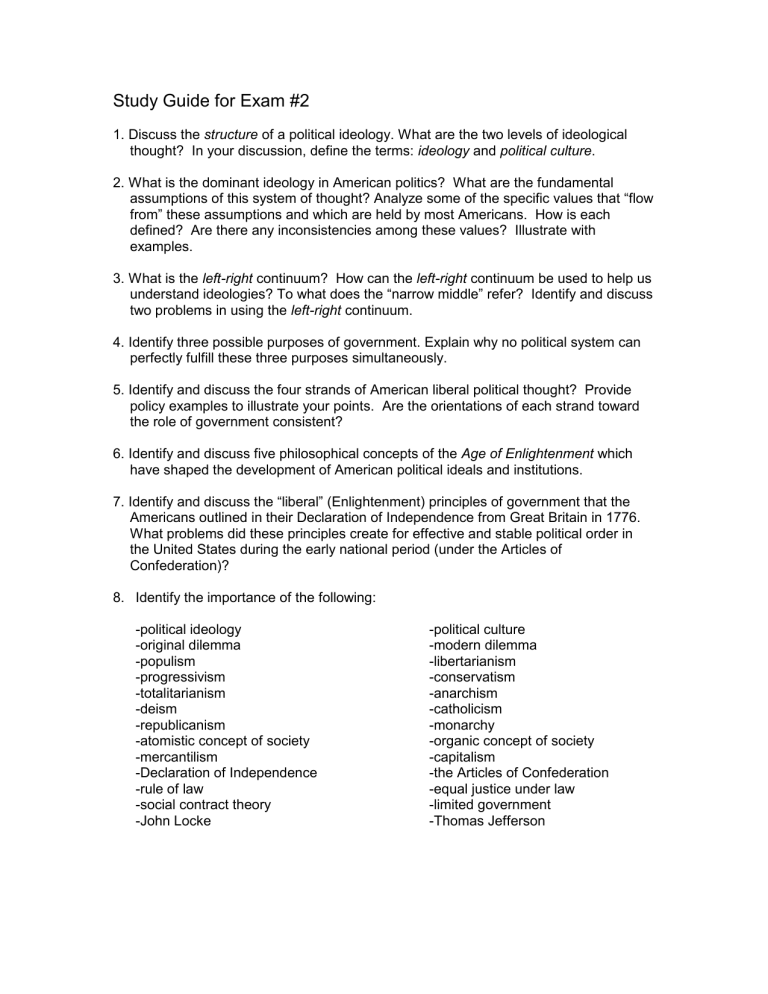
Study Guide for Exam #2
1. Discuss the structure of a political ideology. What are the two levels of ideological thought? In your discussion, define the terms: ideology and political culture .
2. What is the dominant ideology in American politics? What are the fundamental assumptions of this system of thought? Analyze some of the specific values that “flow from” these assumptions and which are held by most Americans. How is each defined? Are there any inconsistencies among these values? Illustrate with examples.
3. What is the left-right continuum? How can the left-right continuum be used to help us understand ideologies? To what does the “narrow middle” refer? Identify and discuss two problems in using the left-right continuum.
4. Identify three possible purposes of government. Explain why no political system can perfectly fulfill these three purposes simultaneously.
5. Identify and discuss the four strands of American liberal political thought? Provide policy examples to illustrate your points. Are the orientations of each strand toward the role of government consistent?
6. Identify and discuss five philosophical concepts of the Age of Enlightenment which have shaped the development of American political ideals and institutions.
7. Identify and discuss the “liberal” (Enlightenment) principles of government that the
Americans outlined in their Declaration of Independence from Great Britain in 1776.
What problems did these principles create for effective and stable political order in the United States during the early national period (under the Articles of
Confederation)?
8. Identify the importance of the following:
-political ideology
-original dilemma
-populism
-progressivism
-totalitarianism
-deism
-republicanism
-atomistic concept of society
-mercantilism
-Declaration of Independence
-rule of law
-social contract theory
-John Locke
-political culture
-modern dilemma
-libertarianism
-conservatism
-anarchism
-catholicism
-monarchy
-organic concept of society
-capitalism
-the Articles of Confederation
-equal justice under law
-limited government
-Thomas Jefferson
